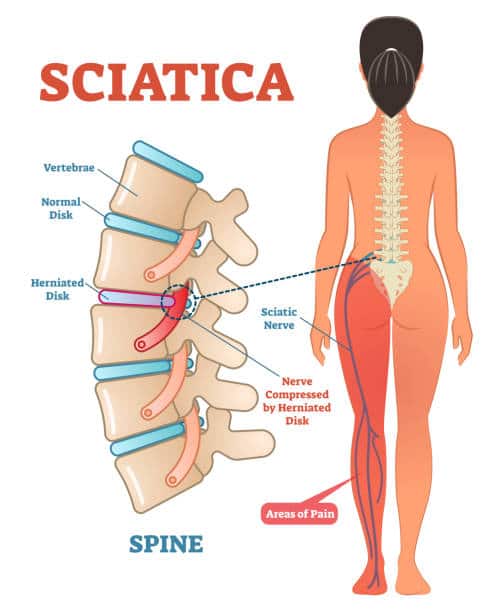Nerve Decompression Surgery in Houston
Under ideal conditions, your nerves do such a good job of making your muscles move and providing you with various sensations that you don’t even think about the work they do. However, when a spinal or peripheral nerve becomes compressed, the resulting malfunctions can leave you with limited mobility, chronic pain, and other unpleasant problems. Fortunately, NW Surgery can rescue you from this unhappy situation by performing nerve decompression surgery in Houston.
What Is Nerve Decompression Surgery?
 Nerve decompression surgery describes any kind of surgical procedure that aims to relieve pressure on one or more nerves. Nerve compression can cause a variety of symptoms, from pain, tingling, and numbness to loss of physical function in the affected part of the body.
Nerve decompression surgery describes any kind of surgical procedure that aims to relieve pressure on one or more nerves. Nerve compression can cause a variety of symptoms, from pain, tingling, and numbness to loss of physical function in the affected part of the body.
The two primary types of nerve decompression surgery include spinal nerve decompression and peripheral nerve decompression. Spinal nerve decompression usually involves the removal of spinal tissues and/or the fusion of vertebrae. Peripheral nerve decompression focuses on giving nerves more free room within the narrow tunnels that house them.
What Does Nerve Decompression Surgery Treat?
Nerve decompression surgery procedures can successfully treat many conditions. Your surgeon may prescribe nerve decompression surgery for any of the following:
- Cauda equina syndrome – This form of spinal nerve compression can lead to permanent loss of bladder or bowel control without immediate treatment. Surgery can relieve the pressure by removing the bone or other tissue pinching the nerve.
 Sciatica – Sciatica is a chronic pain syndrome in which a compressed sciatic nerve causes leg pain, numbness, weakness, or tingling. Removal of excess spinal bone or a herniated disc can ease sciatica symptoms.
Sciatica – Sciatica is a chronic pain syndrome in which a compressed sciatic nerve causes leg pain, numbness, weakness, or tingling. Removal of excess spinal bone or a herniated disc can ease sciatica symptoms.- Spinal stenosis – In this progressive condition, the spinal canal grows increasingly narrow, putting pressure on nerve tissue. Surgery can enlarge the space within the spinal column, relieving the pressure.
- Tumors – Cancerous tumors in the spine can compress major nerve roots. Non-cancerous tumors can compress peripheral nerves, causing pain or other symptoms in the arms, legs, or face. Excision surgery can remove the tumors and put a stop to your nerve symptoms.
- Peripheral nerve entrapment syndromes – Pressure from surrounding ligaments, muscles, or bones can shut off the flow of communication in a peripheral nerve. Surgery can free up the trapped nerve so it can work normally again.
What to Expect During the Surgery?
Your experience with nerve decompression surgery in Houston will depend largely on what area of the body receives the surgery. If you undergo spinal decompression surgery, you’ll receive general anesthesia, remain in the hospital for a few days, and then spend several more weeks recuperating before you can resume light everyday tasks. If you undergo peripheral nerve surgery using endoscopic techniques, you’ll receive local anesthesia (or a nerve block). You can also expect to go home the day of the surgery and experience a relatively rapid recovery.
 Spinal decompression surgeries include laminectomy, discectomy, and spinal fusion. In a laminectomy, the surgeon removes bits of spinal bone that press against nerves, while a discectomy involves the removal of a herniated disc causing similar compression. Spinal fusion surgery permanently joins two vertebrae, preventing joint motion that might compress nerves.
Spinal decompression surgeries include laminectomy, discectomy, and spinal fusion. In a laminectomy, the surgeon removes bits of spinal bone that press against nerves, while a discectomy involves the removal of a herniated disc causing similar compression. Spinal fusion surgery permanently joins two vertebrae, preventing joint motion that might compress nerves.
If you undergo endoscopic peripheral nerve decompression surgery, your surgeon will make a small incision near the site of the nerve compression. A flexible tube called an endoscope is then inserted. The surgeon uses elongated tools to cut a ligament or other tissue, expanding the nerve tunnel and releasing the nerve.
Let NW Surgery Help You
Nerve decompression surgery is delicate work, which is why you need the finest orthopedic surgical care you can find. NW Surgery can provide that care. For decades, we’ve served as Houston’s first and best physician-owned orthopedic surgery facility. Our world-class orthopedic specialists can perform a variety of procedures, including nerve decompression surgery. We also offer advanced non-surgical pain management options such as ketamine infusions and steroid injections.
Our surgery center strongly believes that everyone has a right to top-class, personalized treatment. That’s why we offer competitive prices to patients who lack health insurance coverage. We also take Medicare and many kinds of private insurance.

